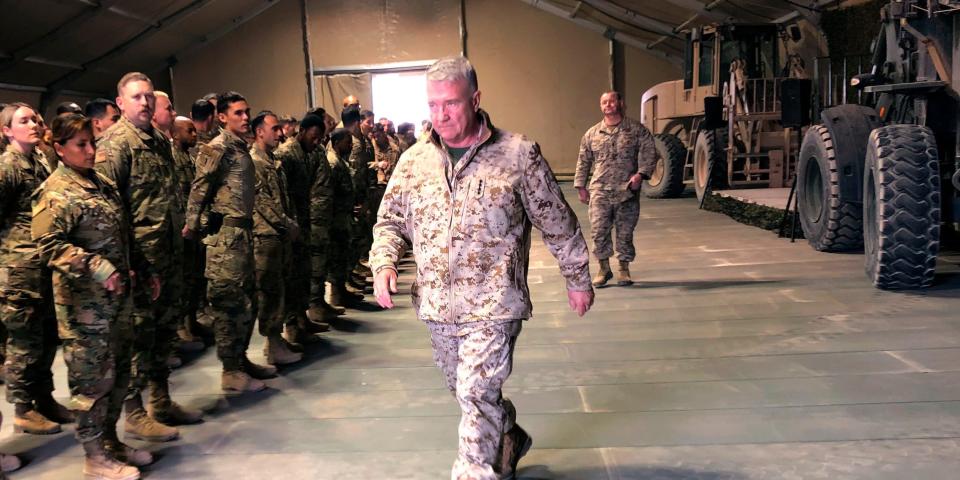Top US general in the Middle East says troops were evacuated at just the right moment before a ballistic missile attack so Iran wouldn't know they left

A top US general said troops were evacuated at just the right moment before an Iranian missile attack last year.
The US military planned its movements on Iran's collection of commercial satellite images, the general indicated on "60 Minutes."
An expert who relies on commercial satellite imagery for research questioned the general's account.
A top US general said that the evacuation of US troops at a military base in Iraq before an Iranian ballistic-missile attack last year was carefully planned so that Iran would not know that roughly half the troops on base had moved out, but at least one expert said the story is a bit questionable.
On January 8, 2020, just days after then-President Donald Trump ordered the airstrike that killed Islamic Revolutionary Guard Corps commander Maj. Gen. Qassem Soleimani, the Iranian military fired a barrage of ballistic missiles at bases in Iraq hosting US and coalition troops, specifically Al Asad and Irbil.
Marine Gen. Kenneth "Frank" McKenzie, head of US Central Command, recently told "60 Minutes" reporter David Martin that "the blood of many Americans is on the hands of Qassem Soleimani."
The general said that not only had Soleimani been connected to past attacks on US civilian and military personnel, but there was intelligence that he was preparing to strike again at the time a drone struck his convoy.
"I never take killing anyone as an easy decision," McKenzie said, "but I think the risk of not acting in this case outweighed the risks of acting." He said that he was "good with the decision" to kill Soleimani.
But when Soleimani died just outside Baghdad International Airport on January 3, 2020, there was no celebration because McKenzie knew what was likely to follow. "There was no backslapping, no cheering because now I have to prepare to deal with the consequences of the action," he said.
The risks of retaliation, if not outright war, contributed to the decision of previous administrations not to kill Soleimani.
The US learned of Iranian preparations for an attack hours beforehand, with at least one intelligence assessment indicating that Iran intended to level Al Asad Airbase, but McKenzie, who was monitoring the tense situation from Tampa, Florida, did not immediately start evacuations.
"There's a bit of an art there, how you do it," McKenzie said on "60 Minutes," adding that "if you go too early, you risk the problem that the enemy will see what you have done and adjust his plans."
The general acknowledged that there is a danger of not acting fast enough though. "If you move too late, you look like [the commanders] at Pearl Harbor," he said.
The US military said that on the day of the attack, Iran was collecting commercial satellite imagery of the air base to monitor US activity, Martin reported.

 Yahoo Autos
Yahoo Autos 